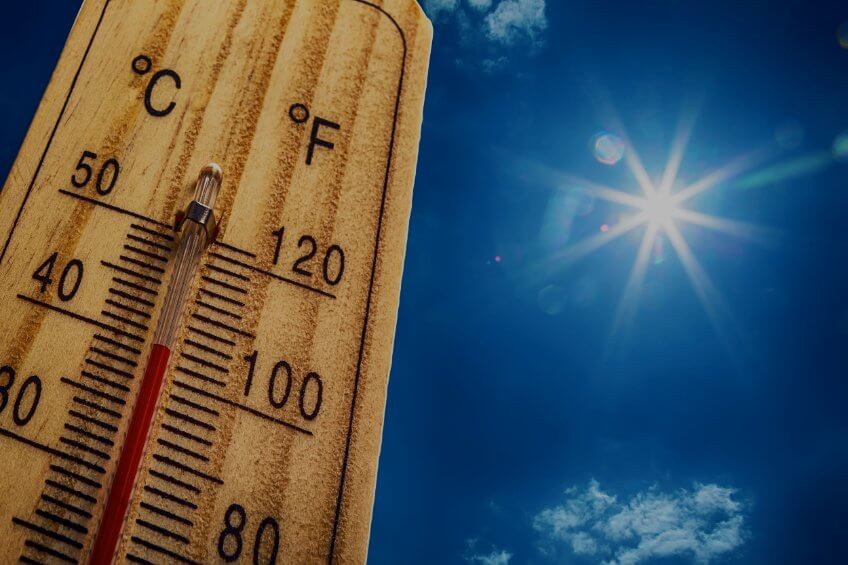
The summer heat can increase the amount of energy needed for your home. You’re A/C is running a good portion of each day, you’re doing laundry and dishes in 100+ degree heat, and kids are running in and out the front door, probably leaving it wide open half the time (cue your dad yelling about not paying to cool off the entire neighborhood here). These processes are all especially taxing on the energy grid during the summer months. But there are some ways to minimize the effects of summer heat gain in your household.
About half of a home’s heat gain in the summer is through the windows (depending on the type of windows and the age of home). If you have older, single-pane windows, it’s a good idea to consider investing in replacements, which will also help keep heat inside in the winter months. But, if you’re not ready for that commitment, there are other choices. You can opt for shade screens or plant a tree outside a window to keep it shady. It’s also a good idea to close blinds or draperies during the day to keep out the heat. You probably love the sun shining in, but even opting to do this on the hottest sides of your house will be helpful.
Darker homes generally are a little warmer than lighter homes, so if possible, painting the exterior of a home a lighter color will help out. You can also combat this by insulating your home well and by installing high quality, efficient exterior doors. Insulation effectiveness is rated in R-values, and you want exterior walls to at an R-19 rating and ceilings at R-30.
Appliances and electronics contribute to the heat gain in your home. In the summer months, try to avoid activities inside the home such as running the dishwasher or doing laundry, during the hottest portion of the day. If you can do this early in the morning or later at night, that helps minimize the strain put on energy needs. Also, if you have an electric car, set the charge to run during the night rather than the day.
You can perform some basic weatherizing processes to help your home be more efficient. One way is to inspect weather stripping on windows and exterior doors. If these aren’t sealed up or are damaged, replace them to minimize air leaking into your home. You can also caulk around window frames and exterior walls where openings from pipes, vents, or electrical boxes are. And keeping windows closed throughout the day and door shut will retain the cool air inside.
For those with solar power, the effects of summer heat gain are probably not as noticeable because your monthly cooling bills aren’t very high. However, you can still be careful with your energy usage and be efficient in your home. If you’re thinking of making the switch to solar, trust your system to the hands of Four Seasons Solar.
